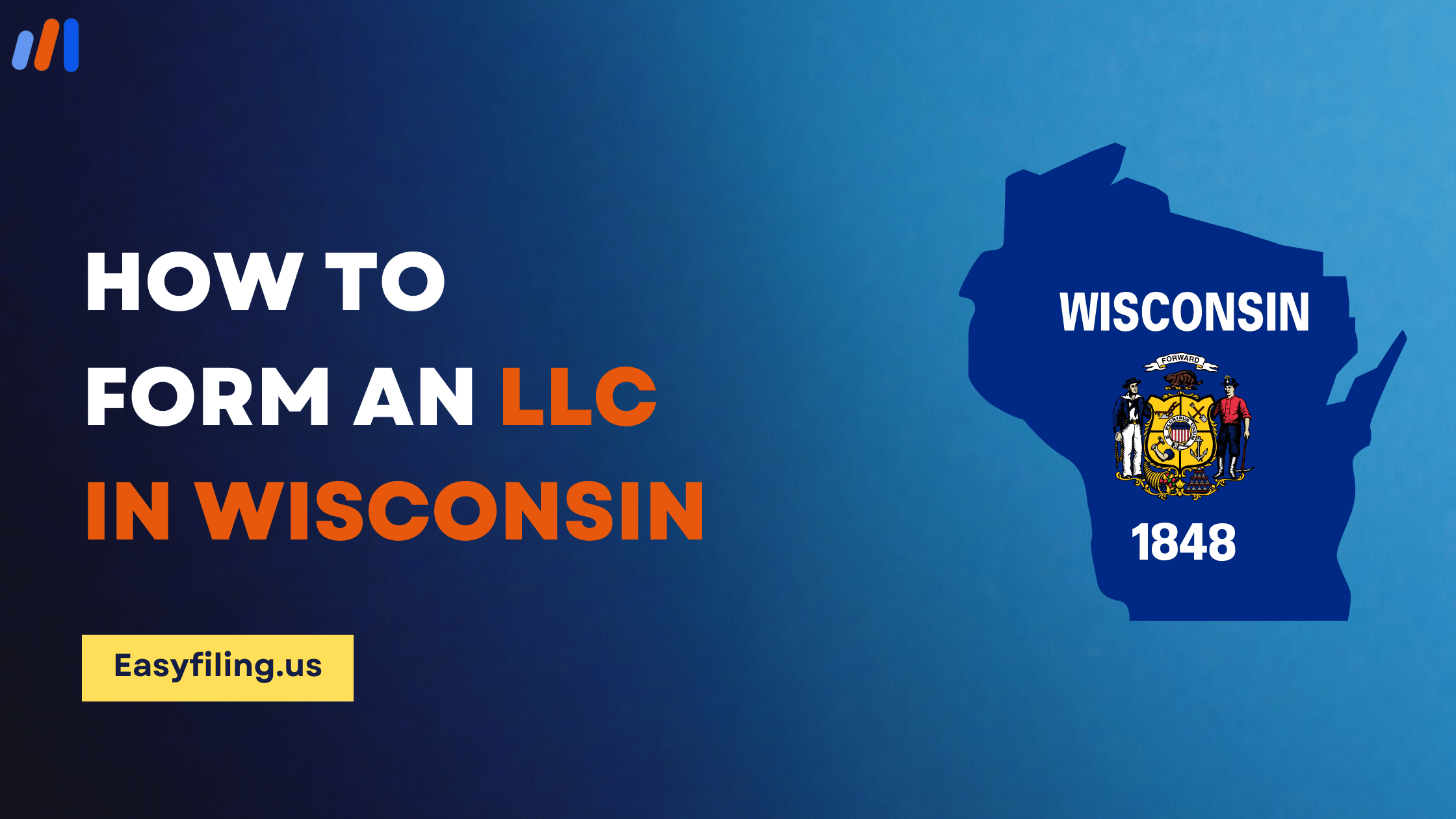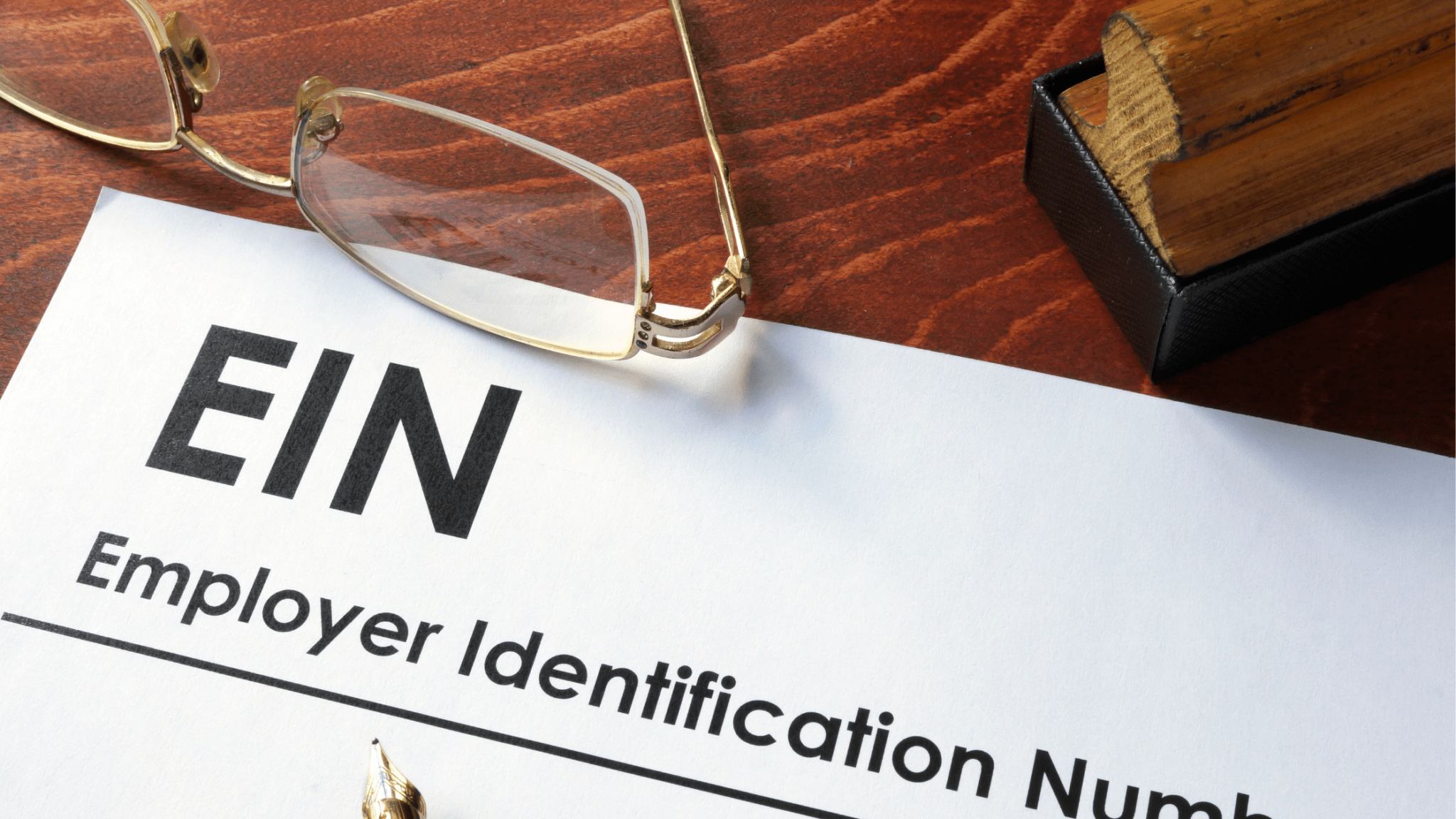Starting a business in Wisconsin can bring several rewards and excitement, and one of the most common and efficient ways of forming a new entity is through the establishment of a limited liability company.
LLCs allow for flexibility akin to a partnership, while also being able to enjoy the liability coverage that a corporation enjoys, making them ideal for entrepreneurs and small business owners.
Whether you are working on a new idea, starting a shop, or looking into growing an established business, there are many reasons why forming an LLC in Wisconsin has multiple advantages including personal asset protection, taxation on a pass-through basis, and flexible structure.
This composite will give you a quick overview of how to set up an LLC in Wisconsin as well as inform you on the steps such as the choice of your business name, filing for necessary documents, and adhering to state laws.
This very simple yet extensive procedure assures that Wisconsin’s legal requirements of businesses are duly complied with and your business is in a competitive position to build on.
Why Form an LLC in Wisconsin
Limited Liability Protection
Perhaps the most crucial advantage of forming an LLC is the liability protection it affords to its members (owners). An LLC is considered a separate legal entity, in which case, in most cases, one cannot touch the business debts and legal obligations of its members.
What this means is members are secured from personal liability about business debts, lawsuits, and obligations so that they can be assured their finances are well protected.
Flexible Management Structure
When it comes to LLC formation, Wisconsin members have access to this structure’s flexibility. They can handle the running of the business themselves also known as member-managed or the business can be also run by managers who are not members known as manager-managed.
This flexibility enables the owners of an LLC to determine how large their business bears regardless of the running of a member business or a professionally managed larger one.
Pass-Through Taxation
In general, Wisconsin LLCs have default pass-through taxation, i.e. the tax is not levied on the LLC as an entity, but only on individual members’ returns of income. As a result, all profits and losses of the LLC go on individual members’ returns.
This avoids the double taxation that C corporations face, wherein the company has to pay tax on its earnings and then the earnings are taxed again when the members receive dividends. Instead, LLC members are taxed only once and only on their portion of the earnings.
No State Income Tax on LLCs
In Wisconsin, LLCs that are treated as pass-through entities do not pay state income tax. This means the members of an LLC do not have a tax at the state level over their business earnings, unlike corporations.
In Wisconsin, LLCs pay tax at the level of individual members, depending on the incomes they share, which is usually advantageous for tax considerations in partnerships or startups.
Fewer Formalities And Compliance Obligations
In Wisconsin, LLCs have less formal and regulatory requirements as compared to corporations. Due to the company structure, there is no annual meeting or any difficult record-keeping practices, which helps save time and interface costs.
However, while LLCs must submit a yearly report with a tiny fee, it is safe to say that compared to corporations, the compliance requirements are considerably simpler and relaxed altogether.
Steps to form an LLC in Wisconsin

Step 1: Choose a Name for Your LLC
Distinct And Different: Members using the business’s name must ensure that such a name is not similar to any already used by other firms registered in Wisconsin. There should be no similarities with other LLCs corporations or other entities in the state.
Naming Requirements: It is a requirement that ‘Limited Liability Company’ or some abbreviation like ‘LLC’ or ‘L.L.C.’ which denotes the business structure be included in the name as self-explanatory. Also, It shall not suggest that your LLC is a corporation, partnership, or any other type of entity.
Name Availability Check: Before dedicating time to drawing up specific plans for a particular company name, one should check whether the said name exists already. Names can be checked through the Wisconsin Department of Financial Institutions’s (DFI) official website, by simply searching for the name. If one plans to create a website for the business it is also wise to check whether appropriate domain names are available.
Trademark Search: One more reason to consider such a search is to clear the name of the LLC from a potential infringement with a registered mark during the branding of the business. This should be done through the U.S. Patent and Trademark Office (USPTO).
Step 2: Designate a Registered Agent
Who is a Registered Agent?: A registered agent is a person or business entity that is officially appointed to deal with the receiving of any legal and official matters on behalf of the LLC including service of process, legal, tax, and other notices.
Requirements: The registered agent must be stationed in Wisconsin, therefore it requires a physical address there but not a box number address. Moreover, they need to be present at their business premises most of the time, so that they can receive such important documents whenever necessary.
Picking your Registered Agent: An individual (including yourself, if residing in Wisconsin), or professional registered agent service can be selected. Choosing a professional registered agent service, several LLC owners explain, prevents them from overlooking any deadlines or documents.
Step 3: Articles of Organization Submission
What Are Articles of Organization?: This is the official document that brings your LLC into legal existence in Wisconsin. It contains pertinent information such as the name of your LLC, its registered agent, the address it has, and its principal business location.
Filing Methods: Because the Wisconsin Department of Financial Institutions (DFI) maintains its website, one has the option of filing Articles of Organization online or submitting a paper form by post to their office.
Filing Online: The registration fee for online filing is $130.
Filing Using Mail: On the other hand, if you decide to make an application by mail, additional charges increase the fee to $170.
Information Required: Articles of Organization will require information such as:
- Name of the LLC
- Name and address of the registered agent
- Address of the principal place of business
- Duration of the LLC. (That is its life unless otherwise stated; most LLCs are perpetual)
- Ownership of the LLC- owned by its members or some other managers- appointee(s).
Step 4: Draft an Operating Agreement
What is an Operating Agreement?: No Operating Agreement is required for filing with the DFI in Wisconsin as per the statute. However, this document is key as far as the internal affairs of your LLC are concerned. In a nutshell, the Operating Agreement outlines the powers and duties of the members and managers of the LLC and their obligations to the company. It helps avoid controversies by stating in unambiguous terms, the proportion of ownership each member has, how profits and losses will be shared, and how and when members can be admitted or expelled.
Not Required by Law: Operating agreement is not mandated in Wisconsin by law. However, any LLC is encouraged to have one for operating purposes. The agreement will establish clarity and prevent confusion in terms of purposes and policies for decision-making and operation.
Content to Include:
- Addresses and names of members
- the ownership and voting percentage
- Management system: Member-managed or manager-managed
- How profit and loss will be shared among the members
- Duties and obligations of different members
Step 5: Apply for EIN Numbers
What is an EIN? EIN is a nine-digit number issued by the IRS for tax ID purposes. Required for your LLC to be compliant and legal, to employ, and for opening company accounts.
When You Need One: If you want to open a bank account in the name of the LLC, file tax returns, or if the LLC is multi-membered, even if your LLC doesn’t have any employees, you will still require an EIN.
How to Obtain EIN: You can obtain an EIN for free and apply directly from the IRS website. The procedure is straightforward, and since the application is completed, you will be issued with the EIN instantly.
Step 6: Register for State Taxes
Tax Requirements: You may have to register for taxation on the state level, in this case, Wisconsin if business activity is carried out from that region. Some of the taxes that can be of concern are:
- Sales Tax: In selling certain services or tangible goods, it is important to consider the sales tax applicable. Register with the Wisconsin Department of Revenue (DOR).
- Use Tax: If your business has acquired goods used in the course of business activities in Wisconsin and placed an order outside the state, you may be required to account for use tax.
- Employer Withholding Tax: If your business has employees, they will need to withhold Wisconsin income tax to be debited from their wages and sent to the government.
- Unemployment Insurance: Regarding your employees, if there are employees registered, you may also be required to provide Wisconsin unemployment insurance coverage.
Register with the DOR: All forms for registration for state tax and other requirements can be found and completed online at the Wisconsin DOR website. It is wise to consult with an accountant to understand tax obligations that are unique to your business.
Step 7: Secure Business Licenses and Permits
Local Licenses and Permits: Depending on your LLC’s industry and where it’s located, some specific local permits or licenses may be necessary. Such can be needed from the county, city, or township level. For instance, if you are opening a bar or restaurant, health department permits, food handling licenses, and liquor permits may also be applied for.
Licenses Obtained Through the Industry: Industries such as construction, healthcare, and finance as well as others in Wisconsin may seek a license or permit State specific to their field to practice. It would also be a good idea to inquire from the Wisconsin Department of Safety and Professional Services or the local Chamber of Commerce.
Step 8: Annual Reports
Annual report requirement: Annual report requirement. Each LLC that is formed in the state of Wisconsin is also required to maintain an annual report for them to be able to maintain good standing with the state.
Filing Fee: This report should be submitted every year before the completion of the month that the LLC was first registered. The annual report is accompanied by a filing fee of $25 and is wholly submitted online via the DFI site. Annual report translation companies specialize in the Papercut reporting framework. If you fail to submit your annual report punctually, it will expose you to fines or administrative dissolution of your Limited Liability Company.
What’s Included in the Report: As for registered agents and company activities, the report also involves the address of the LLC’s registered office. Such information that has been changed after the original filing should be recorded in the report.
Step 9: Comply with Other Business Requirements
Employer’s Obligations: If your LLC intends to employ workers, he/she will have to fulfill some employer’s obligations which may include workers’ compensation insurance, federal and state payroll taxes, and other employment regulations.
Zoning and Building Permits: When you are situated in a physical location, chances are you will have to call your local zoning office and advise them to check if that location is appropriate for the business to be undertaken.
Maintain Good Standing: Besides the annual report filers, provide updated information about the records of the LLC including any amendments to the operating agreements and changes in the ownership of the company.
Cost of forming an LLC in Wisconsin
The costs associated with the formation of an LLC in Wisconsin are inclusive of the following elements:
Filing Articles of Organization:
The costs relating to the filing of a notice under the Articles of Organization in the Wisconsin Department of Financial Institutions (DFIs) costs $130 when done online and $170 for filing via mail.
Registered Agent Fees:
For using the services of a professional registered agent, you would have to pay anywhere in the range of $100 to $300 per year, depending on your agent.
Operating Agreement:
The state may not require you to have an LLC Operating Agreement, but it is advisable to prepare one. If you are working with an attorney, this might set you back anywhere from $500 to $2,000. However, one can simply spend about $50 to $200 if they use a template or go through an online service.
EIN (Employer Identification Number):
If you want to apply for EIN (which is a requirement for most of the LLCs), it is available at zero cost on the IRS website. However, if you use another service to acquire it, expect to pay anywhere from $50 to $100.
Annual Reports:
The company known as Wisconsin LLCs must also submit yearly report filings for $25. The reports are to be submitted every year before the last day of the month the LLC was registered.
Other Costs:
Some business licenses; specific permits, or even some filing requirements could incur some additional costs, depending on the nature of your business.
In total, the fee for starting an LLC in Wisconsin will be from $130 to $400 for the initial paperwork and EIN, and other expenses in the form of an Operating Agreement, a registered agent, and a license may be incurred.
How to start your LLC in Wisconsin with Easyfiling
With Easyfiling, creating an LLC in Wisconsin is simple. Next, you must create a distinct name and appoint a registered agent in Wisconsin.
Easyfiling can submit your Articles of Organization for 130 dollars, assist with drafting the LLC Operating Agreement, and obtain an EIN from the IRS on your behalf.
We offer our clients assistance with business licenses and preparing a 25-dollar annual report that has to be filed each year. Easyfiling customers have competent professional help to set up their LLCs in an orderly fashion and to remain compliant with the laws in Wisconsin.
Book a free consultation and learn how to set up a Wisconsin Limited Liability Company along with any other services you are interested in.
Frequently Asked Questions (FAQs)
Is it possible to establish an LLC in Wisconsin without having a physical address in the state?
It is possible to create an LLC in Wisconsin without a physical address. However, it is advisable to have a registered agent with a physical address in the state of Wisconsin who will act on behalf of the LLC in terms of receiving legal documents.
Can I form an LLC in Wisconsin if I am not a resident?
Yes, non-resident aliens can establish an LLC in Wisconsin. Wisconsin does not have any residency requirements for the owners or members of the LLC; however, it does require that the LLC also has a registered agent in Wisconsin.
Can an LLC in Wisconsin elect to be taxed like a corporation?
Your LLC has the option of being taxed like a corporation by either filing IRS Form 8832 or electing to be classified as one by filing IRS Form 2553. This can be advantageous to certain businesses depending on their size and structure.
What is the process of shutting down my LLC in Wisconsin?
The first step to dissolving your LLC in Wisconsin is submitting the Articles of Dissolution to the Department of Financial Institutions, and submitting the $10 filing fee as well. Furthermore, it is also required that all taxes or tax liabilities are cleared before one proceeds with dissolution.
File Your LLC Today
25$ off with a coupon
Lock in EasyFiling's transparent rates and get lifetime compliance support at no extra cost.
Get Started Now









